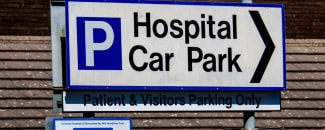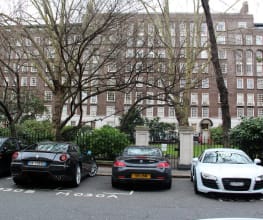Revenue management techniques have been used in the airline and hotel industries for a number of years already. These techniques are now becoming more commonly adopted by the parking industry. Car park operators are increasing their earnings by ensuring that they are selling the right car park space to the right driver at the right time and for the right price.
One of the major advantages that the parking industry has, over the airline and hotel industries, is that a fixed period of time in a particular parking space can be priced very differently depending on a number of variables; the time of day, whether it is a weekday or weekend, and the length of time the vehicle will be occupying the spot. Generally, car parks can charge higher rates per hour for shorter stays. This is not something that either the airline or hotel industry can do, giving car park operators an extra advantage in increasing their profitability.
Mapping current demand patterns can enable car park operators to introduce variable pricing. Drivers park for different reasons at different times. For example, a driver may be parking to attend a business meeting, they may be visiting for a family day out, or they may wish to park overnight while on a weekend away. Demand for parking typically shows a regular pattern based on the time of day, day of the week and season of year. This pattern can be projected forward to estimate future demand parking spaces in your car park.
Drivers tend to view parking charges according to the reason for their need for parking. The driver attending the business meeting may be more prepared to spend more on parking per hour as it is likely to be for a relatively short time and for an important reason. Whereas the family on their day out are looking for parking for a longer time and for reasons of leisure, so they may be more discerning about parking charges when choosing where to park.
Once you have done some research into current demand patterns and have an idea of who tends to use your car park at particular times for particular reasons, you can then consider introducing variable pricing. Implementing variable pricing periods allows you to reflect need and stimulate utilization of your car park facilities at different times of the day and week.
At times when there tends to be low usage of the car park, prices can be lowered to act as an incentive for people to choose to park there. Although the prices are lower, this is still much better than the alternative of having empty spaces in the car park. At times when the car park is in high demand, prices can be higher as people are more likely to pay more for something that is in scarce supply.
In this day and age of technology and instant information, drivers are much more price aware and discerning in their parking choices than in the past. It is important to monitor the pricing of competing car park facilities in the local area. This is particularly important when considering variable pricing. It is no good reducing your parking charges during times of low demand to incentivise use of your parking facilities if a nearby competitor is still offering parking for a much lower rate. Charging too much for your parking fees risks losing business. On the other hand, setting prices too low could compromise your revenue and profitability. By monitoring competitor pricing and making proactive pricing decisions, you will be able to strike the right balance to give your parking facilities a competitive edge.
It is important to continue assessing demand patterns over time. This will allow you to see how the variable pricing strategy is affecting use of the car park. It will also give you the opportunity to adapt prices as necessary, ensuring that the correct pricing is being used to maximise use of car parking spaces.
It is also important to ensure that you use a variable messages sign at the entrance of the car park that can accommodate price changes so that drivers know the current parking charges before they drive into the car park.
One way of ensuring a fixed revenue for a period of time is to offer seasonal parking passes. These are sold to drivers who intend to use the car park on a regular basis. A large amount is charged for the parking pass in advance and the driver can then use the car park during the times agreed on the pass with no additional charge. This is beneficial for the driver as they will save money in the end if they use the car park regularly and they do not need to worry about paying each time they park. It is also beneficial for the car park operators as it means that a fixed revenue is received for that period of time.
Variable pricing could also be introduced for seasonal parking passes. If your car park is in a location where it is often used by drivers attending business meetings, peak passes that can be used during the day in the week could be sold for a higher price than off-peak passes that can only be used at a weekend. This may make more sense the other way around, with higher prices for weekend use, if your car park is located in a busy shopping area or near a tourist attraction that people tend to visit during weekend leisure time.
Additional services and facilities, such as a hand car wash service, can create another revenue point. These services could be packaged with parking to create different price points. For example, a driver could choose to pay extra to have their car washed while it is parked in the car park. In recent years, there has been a rise in the mixed-use of real estate so combining parking facilities with other services is likely to become a profitable option in the future.
For frequent users of a car park, a loyalty programme could be introduced. Building a loyal customer base means that drivers are more likely to make repeat visits to your car park. Loyalty programmes could offer benefits or discounts and could also provide incentives for using additional services, such as a hand car wash. Ensuring that customers feel valued makes the parking experience more rewarding and leads to repeat business.
Offering a pre-booking service for parking spaces is another way to optimise revenue. Most drivers make use of the internet to check where they will be parking. Studies show that online customers are willing to pay a premium, of up to 20% more, for the peace of mind of knowing that there will be a guaranteed space waiting for them when they arrive. Drivers appreciate the convenience of being able to reserve a premium parking space in advance from the comfort of their home or office.
Pre-booking generates additional income for the car park operator. It also helps car park operators to forecast for the future. With pre-booking, it is easier to ascertain whether the car park is likely to be busy or quiet during particular periods. Having this information then enables car park operators to act in order to increase use of the car park facilities during times of low demand, by introducing lower prices or offering promotions. Again, this helps to maximise revenue.
A more unusual idea for increasing revenue is letting out your car park facilities for other uses at times when parking is not in high demand. For example, car parks can be used as market venue or festivals. A car park in Miami was even used to host one of the grandest wedding receptions in the city. Think creatively about how space could be utilised and advertise these options to key target audiences.
Advertising is another great way to generate additional revenue. Billboards are much more interesting than having blank walls in car parks. They also have the added advantage of helping customers remember where they have parked. Advertisements could also be printed on the back of tickets.
The parking industry is changing at a rapid pace and car park operators need to be able to keep up with the times. As outlined in our guide, there are a number of revenue management techniques that can be used by car park operators to increase earnings. Making use of these techniques can improve your revenue management and maximise the profitability of your parking facilities.








